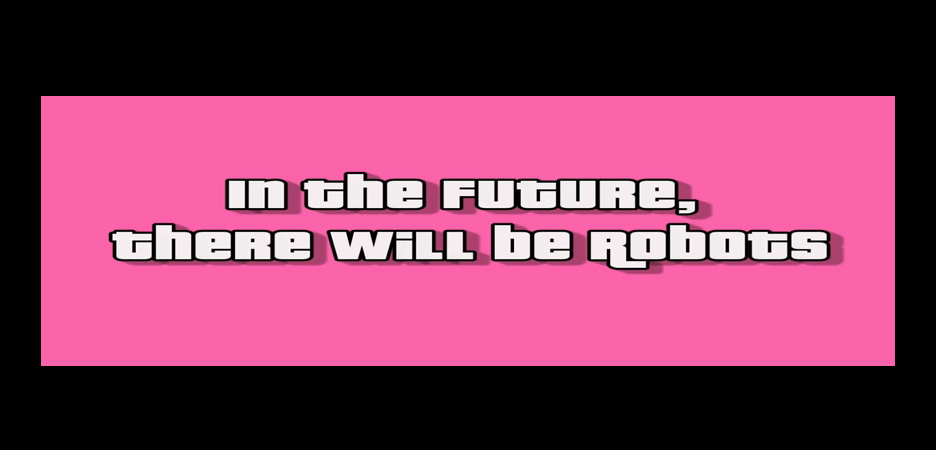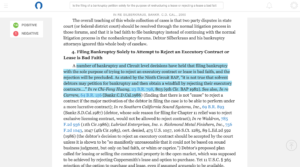(Note: this is Part 4 of a series regarding Stanford CodeX Future Law 2016 Conference. Part 1. Part 2. Part 3.)
The final hot issue (so hot) at the conference was the future of artificial intelligence (A.I.) in law. Will A.I. replace tasks done by lawyers? Will A.I. disrupt the practice of law? In the future…will there be robots?
The “Hot or Not: Watson and Beyond” panel, moderated by professor Dan Katz of IIT Chicago-Kent College of Law, featured panelists who work with AI on a daily basis, including Khalid Al-Kofahi, Thomson Reuters; Andrew Arruda, ROSS Intelligence; Charles Horowitz, The MITRE Corporation; Himabindu Lakkaraju, Stanford University; and Noah Waisberg, Kira Systems.
When I first saw the list of the panel, my initial response was:
So 5 AI people. Who is supposed to be the "not?" #FutureLaw #Futurelaw2016 https://t.co/fUpiZQ7j02
— Keith Lee (@associatesmind) May 20, 2016
But in listening to the talk, I was surprised to the extent everyone involved went to manage expectations. As Noah Waisberg responded:
Me! I think @hima_bindu was in the "nuanced not" camp too
— Noah Waisberg (@nwaisb) May 24, 2016
The panelists all seemed to point to A.I. assisting lawyers in some manner, not replacing them. Most seemed to think that was a far flung goal, one that might not ever happen. It was suggested the A.I. could enhance lawyers’ practice, make them more effective. A.I. was just another tool in the toolbox. A bright, shiny new tool, but still a tool nonetheless.
The thing with tools is that they are only as good as the hand that wields them. You can give a tool to an apprentice and a master and set them to the same task, but you’ll get very different results.
I recently sat through a demo of one of these tools, the A.I. assistant that has been in the news frequently, ROSS Intelligence.
The Natural
CEO Andrew Arruda showed me ROSS this past week in the wake of Codex. ROSS sits atop IBM’s Watson platform and helps lawyers with legal research. It’s very similar to using Westlaw or Lexis at the moment. The differentiator for ROSS is that it’s much easier for lawyers to use natural language search.
Instead of using some specific search string or boolean search modifiers (OR /5), a lawyer can do legal research much more akin to how they use Google. The concept is that you don’t need to be a master at legal research, you just need to be able to ask a question as you normally would. Of course, you still need to ask the right question – ROSS isn’t going to be thinking for you.
Arruda was big on the time savings that ROSS was generating for clients. He was confident that ROSS could find better answers, faster than the competition. I wasn’t able to put this to the test, but I’ll say that it felt faster. If nothing else the user interface is a spartan affair that helps it feel “light.” ROSS seems to be going for a very streamlined approach to legal research.
At the moment, ROSS works exclusively with bankruptcy law. Arruda said this was a decision they made because the only have to deal with federal law and it is a cost sensitive practice area (one party is y’know, bankrupt). But the more lawyers use ROSS, the ‘smarter’ it gets. It becomes better at discovering relevant information and producing the best results. Arruda said this learning is not domain specific, and ROSS will be able to apply it to other areas of law that they add in the future.
At the moment, ROSS is in its nascent stages, coming together within the past 11 months. Yet in that short time they have landed some rather high-profile clients, something that often eludes legaltech startups for years. This is undoubtedly in part due to their partnership with Denton’s NextLaw Labs. But even with that partnership, if the their product didn’t work, people wouldn’t use it.
Arruda was also quick to say that they didn’t want ROSS to be the exclusive province of “BigLaw.” The team at Ross envisioned a future wear lawyers, regardless of firm size, had some sort of A.I. assistant helping them with legal research. They want to try and make it affordable and available to all firms.
Transformation Is A Process
So is ROSS, or something like it, going to be your new robot lawyer overlord? No. ROSS is just a small step towards smarter toolsets being made available to lawyers. It’s aiming to be the equivalent of going from this:
To this:
In hopes of soon becoming this:
The latter is more efficient and faster than the former, but you still need someone to use it. For the foreseeable future, that’s likely to be the role of A.I. in law as well.
[divider]
That’s it for the #futurelaw coverage. Thanks again to the folks at Stanford Codex for having me at the conference and to the Casetext guys for the invite/challenge to the moot court.



















